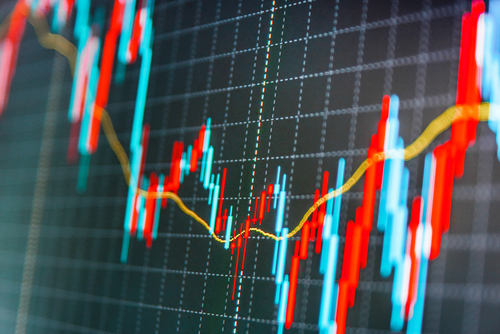Many of you will have stumbled into FX trading by accident, rather than design. FX markets are not like other markets, that you’ve always been familiar with, in which you simply take a punt. The FX retail trading market can’t be compared to, for example, sports betting markets, where you may (in a stress free manner) bet for fun on your favourite football team, in a European champions league game etc.
You don’t open an STP-ECN account, such as an account with zero fees, just to take an occasional bet for fun, or on a hunch. You might have been curious regarding financial markets, you might have read articles on FX trading in the mainstream media or financial press, or you might have a friend, or relative who mentions their involvement, whilst perhaps eulogising over their success. These points of interest and relationships may have piqued your interest in FX.
Once you initially become involved in FX trading, you begin to quickly realise the challenge it represents and how (and why) you have to behave as a professional, from day one. You will progress your FX trading by degrees. There are no shortcuts, or previous apprenticeships you can serve, which will prepare you as a retail trader. There’s no educational course available, that’ll prepare you for the industry and the challenges FX trading represents. You simply have to learn on the job, as you eventually move through the gears; from demo accounts, to micro/mini accounts, to eventually trading what we term “full lots”.
There has to be a reason for you to take up FX trading, to have the enthusiasm to trade and then continue trading. During your steep learning curve period, you’ll quickly discover: what motivates you, who you’re trading for and overall how you’ll begin to define your trading purpose. You’ll need to maintain a steely focus on your purpose, during the testing times you’ll experience, especially at the beginning of your involvement in such a complicated process and activity, in which you can easily lose, unless you’re completely dedicated.
FX trading cannot be regarded as a hobby, whether you’re trading on a part time basis, hoping to eventually move towards full time trading, or trading full time from the start. You have to (very quickly) develop a trading plan and define your ultimate reason for trading. Why are you trading, who are you trading for, what’s your ultimate goal? Unless you define these reasons, you’ll find it increasingly difficult to justify your involvement in the FX industry, particularly during times when you inevitably experience losses, either individual trade losses, or a series of daily losses, which can test your resolve and commitment.
If you’re trading for yourself on a part time basis, perhaps looking towards supplementing your income, then you can adjust your goals accordingly. If you’ve amassed a suitable of level of capital in order to trade full time immediately, then you need to define completely different ambitions and goals. We all need purpose, whatever kind of work we find ourselves in. We all need to develop pride in our work, to justify our reasons for staying in our professions.
Nurses don’t work for the financial rewards, they’re often underpaid and overworked, in whatever society they work in. They dedicate themselves to improving and saving lives, because they have developed purpose. Teachers don’t work because they’re extremely well paid, they have the responsibility to educate up and coming generations, whilst hopefully engendering good values in their students.
When novice FX traders are asked the question; “why do you trade”? the typical answer is “for the money and success”. Whilst that pursuit of money doesn’t capture the noble reasons a nurse and teacher would consider their life’s purpose, it is a genuine and honest answer. However, the answer overlooks several aspects of a trader’s personal development during their trader evolution. Personal human development that can be just as important and valuable as making money.
Rather than define your trading purpose as making money, perhaps it’s worth considering other reasons to trade. Here’s some other benefits, over and above monetary gains, that might define your mission, passion and purpose for trading.
- You’ll develop a comprehensive knowledge of economics.
- You’ll develop technical analysis skills.
- You’ll develop emotional control.
- You’ll gain independence and freedom.
- You’ll be running your own business, answerable only to yourself and those closest to you.
- You’ll develop new, unique skills.
- After a period of many years trading successfully, you might find yourself in demand in the industry, perhaps on the other side of your trades.
These are valuable reasons to trade, over and above financial gain, that will directly help build the foundations of your overall trading purpose.


